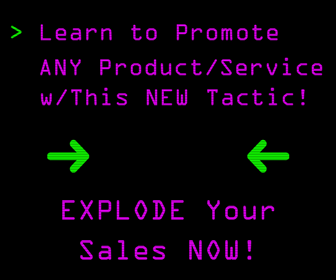SEO can be roughly divided into two main categories: “on-page” and “off-page.”
For the most part, on-page SEO is pretty straightforward.
You want to make sure Google can crawl and index your site.
You want to have a clean, readable URL that contains your target keyword.
You want the keyword in the title and some of the subheadings, although keyword stuffing is a definite no-go.
Then, there's off-page SEO. In a lot of ways, this is a bit trickier and harder to master.
When most people think “off-page SEO,” they think “link building.”
But actually, there's a lot more to it than that. It encompasses a range of things you can do outside of your own website, all of which can make you more likely to rank.
And a lot of this involves reaching the broader aspects of building and establishing your brand.
From having a great product (even if that product is the content itself), to understanding and catering to search intent by looking at how people find similar websites, it's about finding new ways to get your brand in front of the right audience.
In an article from Moz, content strategist Ronell Smith explains the less obvious side of off-page SEO.
Brand
“No amount of SEO in the world can help a crappy product or service (at least not for long).” This is a sentence I frequently utter to folks who refuse to prioritize what they offer in favor of trying to put lipstick on a pig.
#1: Create a 10X product or service
When your product or service is recognized as the best in its class, your job as SEO becomes much, much easier.
That’s because both online and offline, people are likely saying great things about the product and brand, which leads to visits to your website, positive reviews on third-party sites, and increased sales of the product.
This only occurs, however, if you focus first and foremost on creating the best product you can.
Easier said than done, I know.
Here’s a great place to start, depending upon where your product/service is in the evolution cycle:
Existing product: Deliver the goods on features customers would most benefit from based on requests and complaints online regarding competing products.
New product: Focus on the most essential benefits your new product can provide to the prospective audience. When you do this, you remove objections and features present themselves.
#2: Customer service
No one who’s watched the United Airlines meltdown needs to be sold on the value of customer service as an effective asset for off-site SEO. The brand will be paying for that epic disaster for years as millions of folks continue to share the video and images of the event.
It’s not hard to imagine how poor customer service has made the brand’s SEO and PR teams’ reputation management efforts a nightmare.
For your brand, focus on a singular goal:
Leaving everyone your brand/brand spokespeople comes into contact with — online or offline — feeling as though the interaction could not have been more positive.
For example, at in-person events, make sure staffers wear a smile, empathetically interact with everyone they meet, and go out of their way to answer questions or provide general help. It also means ensuring any content you create leaves people feeling good about your brand.
It’s unlikely this billboard was much of an off-page SEO benefit to SouthBendOn.com.
# 3: Focus on web searchers' intent
Turns out the old cliche that “you attract more flies with honey than vinegar” is very relevant to SEO. People are typically more willing to buy and use your products and services if they can first find them.
A lot of times, our products and services fail to live up to their full potential because we aren’t matching our offering to the needs of our prospective audiences.
A great example of this is creating and sharing content without keywords the audience might be using to look for a similar product.
In addition to matching titles, descriptions, and keyword phrases to searcher’s intent, make sure you focus on where the content is shared and discussed.
It also starts with putting the needs of the audience first.
“For uncovering searcher intent…[s]earch, refine, broaden queries, talk to people, read discussion threads, have empathy,” wrote Rand Fishkin in a recent tweet.
Use Google Autosuggest, Keywordtool.io, and Answerthepublic.com to get in front of what it is people are looking for online relative to your product or service.
You can find out more about how you can up your off-page SEO game over at Moz.
CHALLENGE Yourself to Profit!
Free Download: Build Your Profit-Generating Online Business With This Free Blueprint
Sign Up, follow the easy steps and You'll get the tactics, strategies & techniques needed to create your online profit stream. It's free!





